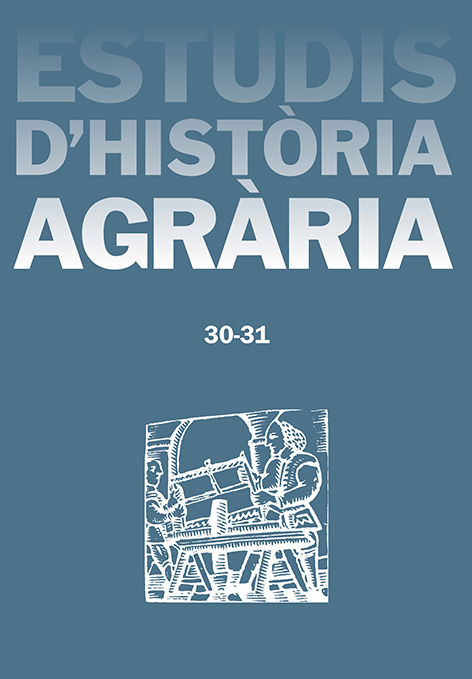Redelmes: new taxes on income in the communities of north-eastern Catalonia (c. 1350 – c. 1500)
DOI:
https://doi.org/10.1344/eha.2019.30-31.193-235Keywords:
taxation, Catalonia, Late Middle Ages, rent, rural communities, town-country relationshipsAbstract
This paper deals with the taxes on a wide range of incomes, developed in Catalonia from the mid-14th century onwards as an alternative to traditional direct taxes on patrimony and indirect taxes on the consumption and trade of different products. After reviewing our current knowledge of this fiscal resource, we analyse a sample of one hundred examples from the diocese of Girona from approximately 1350 to 1500, documented mainly through notary records. The paper describes common features and differences among diverse cases, as well as the way they were levied. Additionally, it underlines how the design and implementation of these taxes provides a glimpse of the range of activities and incomes registered in small towns and eminently rural parishes.
Downloads
Published
Issue
Section
License
Copyright (c) 2019 Albert Reixach Sala

This work is licensed under a Creative Commons Attribution-NonCommercial 4.0 International License.
From issue 29 (2017), when submitting a proposal, the author retains the copyright but grants the journal the first publication of the work.
The texts will be disseminated under the Creative Commons licence Attribution Non commercial (CC-BY-NC) which allows the work to be shared with third parties, provided that authorship is acknowledged, the initial publication in this journal, the conditions of the licence are met and no commercial use is made.



